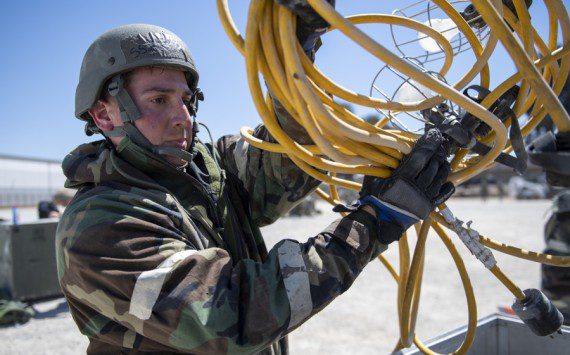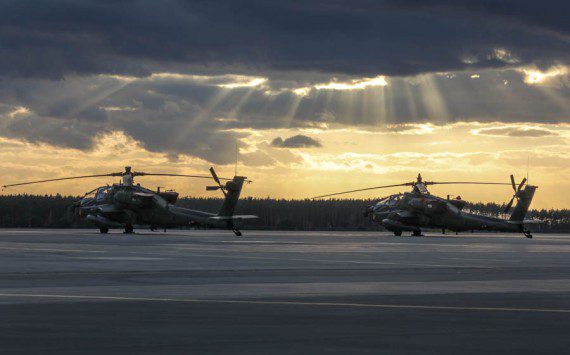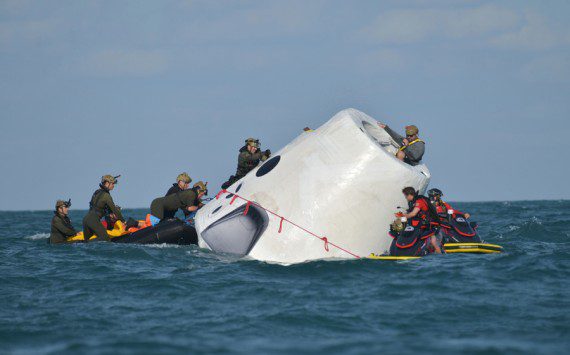Australia leader talks down prospect of U.S.-led army in Syria
There is no support among world leaders for the prospect of a U.S.-led army in Iraq and Syria to take back ground from Islamic State militants, Australia’s prime minister said Nov. 24.
Prime Minister Malcolm Turnbull said in a speech to Parliament on national security that his government did not intend to change Australia’s military commitment to Iraq and Syria in response to the Paris attacks as well as the recent attacks in Africa and Lebanon. Australia’s contribution of fighter jets in Syria and Iraq and military trainers in Iraq is one of the largest among the 60-nation coalition.
Turnbull said his recent discussions with world leaders at the G-20, APEC and East Asia Summit forums found that “there is no support currently for a large, U.S.-led Western army to attempt to conquer and hold ISIL-controlled areas.”
“In Syria, the broader conflict and the absence of a central government that the West can work with makes action against ISIL even more complicated,” Turnbull said.
Some government lawmakers have advocated sending ground troops into Syria. The Iraqi government does not allow Australian troops to operate off base in Iraq.
But Turnbull said “the unilateral deployment of Australian combat troops on the ground in Iraq or Syria is not feasible or practical.”
There have been three attacks in Australia since September last year when the terror threat level was raised to the second-highest level on a four-tier scale. That means the government considers a terrorist attack is likely.
Turnbull said a new five-tier scale would be introduced this week that would provide the public with more information on the nature of the threat. AP
Japan’s defense minister meeting military leaders in Hawaii
Japan’s defense minister is in Hawaii to meet with senior U.S. military officials for the first time since his country’s parliament approved legislation loosening post-World War II constraints on its military.
Defense Minister Gen Nakatani was scheduled to meet with U.S. Pacific Command commander Adm. Harry Harris Nov. 24. The Pacific Command said Nakatani’s discussions were expected to cover security in the region, including in the East and South China Seas. Ballistic missile defense was also on the agenda.
Japan’s parliament passed legislation in September allowing Tokyo’s military to defend its allies even when the country isn’t under attack. The law will enable Japan to work more closely with the U.S. and other nations.
Ralph Cossa, president of the Pacific Forum CSIS think tank, said the two allies need to determine how the law will work when it comes to operations. That’s likely to be a topic of Nakatani’s discussions in Hawaii, he said.
“People are still curious as to what the two are going to be able to do together,” Cossa said.
Ballistic missile defense is one area where increased cooperation is expected.
“With the new legislation, presumably now if the North Koreans shoot a missile toward Hawaii, and the Japanese detect it, they can shoot it down. Before they just had to just sort of wave to it as it went by,” Cossa said.
Japan has invested heavily in missile defenses since North Korea test-fired a ballistic missile over Japan’s main island in 1998. Nakatani’s schedule in Hawaii included a visit to the Sea-based X-band Radar — which is used to detect ballistic missiles — at Pearl Harbor.
The new law would also allow Japan to help defend a U.S. ship under attack. The U.S. has long been able to help a Japanese ship in the same situation, but Japan’s prohibitions against collective self-defense didn’t allow the reverse.
The legislation sparked protests and debate in Japan about whether Tokyo should shift away from its pacifist ways to face growing security challenges.
The law’s supporters say Japan’s neighborhood has become a more dangerous place, citing North Korean missile tests and Chinese challenges to Japanese sovereignty over remote islands.
They say Japan’s military needs to be more active to deter China and North Korea and help preserve Japan’s peace and prosperity. A major goal of the legislation is to allow the military to work more closely with its main ally, the United States, strengthening their joint capabilities. AP
Marines: Sandy conditions a factor in deadly aircraft crash
A military investigation has found a U.S. Marine Corps hybrid aircraft that crashed in Hawaii this year, killing two Marines, flew in sandy or dusty conditions for an extended period before its engine stalled.
The investigation found the stalled left engine put the MV-22 Osprey in an unavoidable freefall.
The airplane-and-helicopter hybrid crashed at a military base outside Honolulu in May with 21 Marines and a Navy corpsman on board.
U.S. Marine Forces, Pacific said in a statement Nov. 23 the pilots didn’t violate any regulations or flight standards. But investigators say a proper risk assessment should have prompted the pilots to choose a different flight path or landing site to avoid dust or sand.
Investigators are recommending changes to help pilots make better decisions in similar situations. AP
Los Angeles to host Navy Fleet Week starting next year
Los Angeles will begin hosting U.S. Navy vessels in an annual Fleet Week starting next year.
Mayor Eric Garcetti and Navy officials announced the plan Nov. 23 aboard the USS Iowa, a retired World War II-era battleship that is now on display in the Port of Los Angeles.
Officials intend to make LA Fleet Week an end-of-summer tradition featuring active military ships in the days leading up to and through each Labor Day.
Los Angeles is making efforts to promote its waterfront as a visitor destination. AP
Boeing workers fired for sexting
Boeing officials say several workers have been fired and disciplined for “inappropriate personal behavior.”
The Daily Herald reports that sources at the company say the employees at the Everett, Wash., plant were using company-issued phones to send sexually-explicit images via text message. The sources were not allowed to discuss the matter publicly.
Details on what exactly prompted the firing and what other disciplinary measures were taken have not been released.
Boeing said in a statement that the employees’ actions are not representative of the entire company. AP











